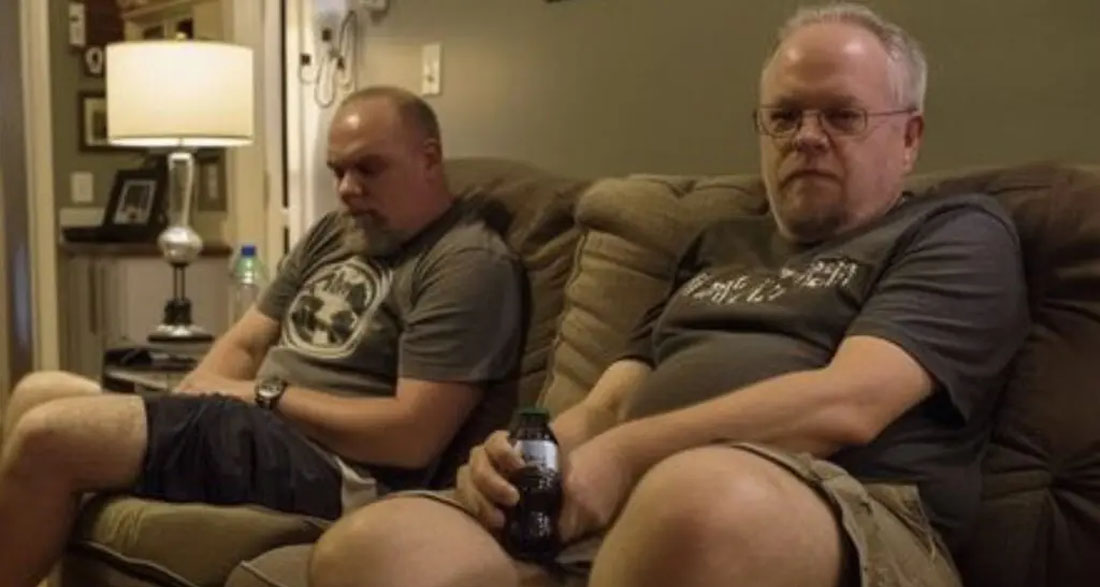What started as a typical evening quickly turned into a fiery argument about old-fashioned gender roles, leaving my kids and me without dinner.
My husband, Daniel, and his father, Walter, clashed over how we run our household, and they were about to learn a lesson they wouldn’t forget anytime soon.
Daniel grew up in a very traditional family where his father was the breadwinner, and his mother stayed home. But our family operated differently. Both Daniel and I work full-time and share the household chores equally. Walter had always disapproved of this arrangement and made it clear.
He disliked the idea of me having a career and wasn’t happy with Daniel helping out at home. Before Walter and Ruth came to stay with us for two weeks, I felt mixed emotions about my in-laws. Ruth, Daniel’s mother, was soft-spoken and rarely shared her thoughts, especially when her husband was around.
Though she was kind to me, her quietness made me think she wasn’t fully comfortable with our lifestyle. Walter, on the other hand, had no problem voicing his opinions. He often made snide comments about how a woman’s place was in the home, believing men should be the sole providers.
I tried to ignore his remarks for the sake of peace, thinking we could manage to coexist despite our differences. But I knew hosting them would come with challenges.
Our routine was working well—Daniel and I had found a balance that suited us. I usually handled breakfast, we all went out for lunch, and Daniel took charge of dinner.
One evening, after a long day at work, I headed upstairs for a quick shower. I expected to come down and find dinner ready, as usual. Instead, there was nothing—no food, no sign of cooking.
The kids were restless, repeatedly asking when dinner would be served. I looked at Daniel, hoping he would step up, but he avoided my gaze. That’s when Walter chimed in.
“Rachel, your husband didn’t cook because it’s not his job. You need to stop being lazy and fulfill your duty as a wife. By now, a proper woman would have dinner on the table.”
I was shocked. Daniel just sat there, nodding along with his father’s outdated views, not even looking at me. My anger boiled over.
“Oh, really?” I said, my voice trembling with fury. “So after working all day, I’m supposed to come home and start cooking because that’s what a wife is supposed to do?”
Walter sneered. “Exactly. A woman belongs in the kitchen.”
I turned to Daniel. “And you agree with this?” I demanded.
He shrugged, mumbling, “Maybe you could help out more with the house and kids. It’s tradition, after all.”
“Tradition?” I shot back. “Tradition isn’t going to pay the bills when you’re making $40,000 a year. We’re a family of five, Daniel. Your paycheck alone doesn’t cut it. You don’t earn enough to have these kinds of views.”
Tears formed in his eyes, but I wasn’t finished. I faced Walter. “And you! When was the last time you treated your wife to dinner? Do you even have any idea what it takes to run this household?”
Pointing to the car he was so proud of, I continued, “That car you’re driving? I paid for it. Your son asked me to cover the payments because my salary is higher.
So, since I already covered this month’s payment, I’m going to use that money to take Ruth and my kids out for dinner instead. Let’s see how you two manage the next payment, like real men.”
Without waiting for a response, I gathered Ruth and the kids and headed out to a nice restaurant. We had a lovely meal, and for the first time, Ruth seemed relaxed and grateful, thanking me throughout the evening.
Back at home, I knew Daniel and Walter were left to stew in their own discomfort. It was time they understood that respect and partnership, not outdated customs, are what make a family work.
The next morning, the air was thick with tension. Daniel and Walter were unusually silent during breakfast. Finally, Daniel broke the silence.
“I’m sorry,” he said quietly, his voice barely audible. “I let my dad’s opinions get in my head, and I hurt you. I shouldn’t have done that.”
Walter shifted in his seat, uncomfortable, but eventually spoke up as well. “I’m sorry too. I’ve always believed in doing things a certain way, but I see now that times have changed.”
Ruth, sitting quietly, nodded in agreement. While I appreciated the apologies, I needed to see real action.
Over the next few days, both men made noticeable efforts. Daniel resumed his usual responsibilities without complaint, and although Walter was awkward at first, he tried to help out more around the house.
One evening, as we prepared dinner together, Walter approached me. “Thank you,” he said earnestly. “You’ve helped me see things differently.
I understand now that respect and teamwork are what really matter in a family.”
His words touched me. “I’m glad you see that,” I responded. “It’s not about following old rules. It’s about supporting each other.”
From that point forward, things began to improve. Daniel and his father started working together to ensure everyone felt valued, and Ruth began to voice her thoughts more often.
Our family grew closer, breaking away from the outdated traditions that no longer served us.
In the end, it wasn’t just about proving a point—it was about growing together and building a stronger, more respectful family.
Share your thoughts in the comments!


